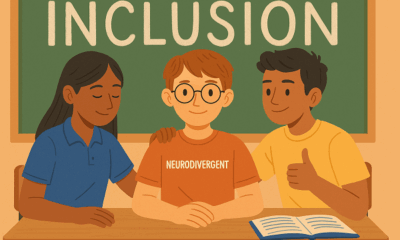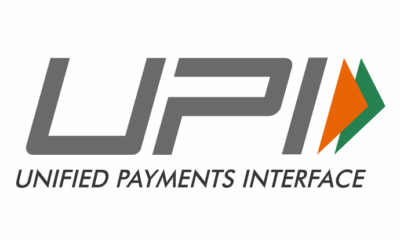News
Need of the hour: Special status for teachers
PARVATHY JAYAKRISHNAN examines the many valid reasons why teachers need to be given the respect, remuneration, safety and security they deserve
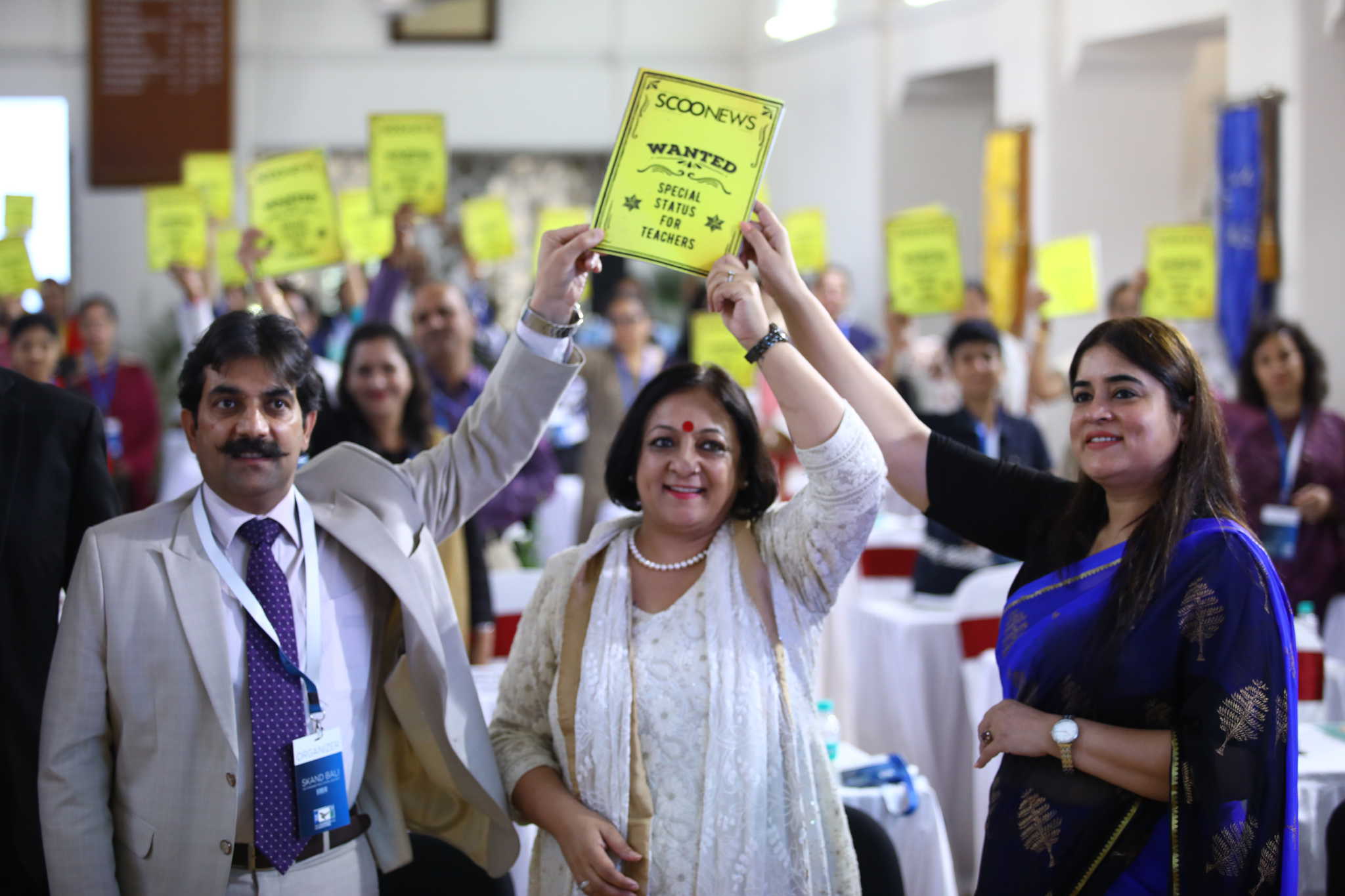
A teacher fills in as a parent in the formative years of a child, she/he guides and corrects a child when he make mistakes, encourages students to reach for the stars and applauds their achievements. All packed in one, a teacher’s role is not an easy one. A teacher sometimes takes on the role of a parent, a friend, a confidant and much more. A student spends so many years interacting with his/her teachers on a daily basis and the role of a teacher in a student’s life cannot be replaced by any other professional in society. And clearly, it is the teachers who are responsible for building good citizens. Hence, good teachers are truly what a country needs to move forward. The unfortunate reality is, despite all these responsibilities and roles resting on a country’s teachers, they not given the respect and special status they truly deserve.
An army man in uniform or a doctor is well-respected in our society. In some states, patients remove their footwear before entering a doctor’s chamber as a mark of respect – the kind of respect that you give God while entering a place of worship. We smile and sometimes even bow our heads as a mark of respect when we see an army man in uniform. However, the work and efforts of teachers are more often than not ignored in our society. Is it a kind of conditioning that we are brought up with?
We are very proud of our sacred guru-shishya parampara, which is a tradition of spiritual relationship and mentoring where learning is transmitted from a guru "teacher" to a shishya "disciple". Such knowledge, whether it be Vedic, agamic, architectural, musical or spiritual, is imparted through the developing relationship between the guru and the disciple. We talk ever so proudly about our Gurukul system of learning where the students live near the guru or in the same house as the guru and learn lessons of life from the guru. The guru does this without accepting any fees from the students because the relationship between a teacher and student is considered sacred.
Sonal Ahuja, Learning evangelist, founder, House of Learning explains that for thousands of years, the Indian subcontinent revered its teachers to the highest level. “Indian tradition dictated that teachers must be treated with respect that paralleled kings. The Mahabharata famously depicted the story of Eklavya, a gifted archer who cut off this thumb as Guru Dakshina to show his unconditional gratitude to his Guru, Drona.”
So, we cannot completely blame our conditioning because our traditions and values teach us to respect “the teacher” the same way that you respect God. Then where did we go wrong and why aren’t teachers today given the kind of respect they deserve?
Urvashi Warman, Principal, The Palace School, The City Palace, Jaipur believes that the government needs to step in and set high parameters for teacher selection. She says, “When we have such stringent standards set at the entry level for doctors and engineers, why are we so lax in raising the bar at the entry level to become a teacher … a teacher who actually helps to give good doctors and engineers to the society? The government should also set decent rates for monthly emoluments so the teacher is not forced to indulge in additional commercial activities to make two ends meet. This by far is diluting not only the standard of education being imparted but is also lowering the stature of a teacher as he gets relegated to the level of a commercial tutor rather than getting elevated to the pedestal of an Acharya or Guru.”
Shalini Dahiya, educator, Modern School – Barakhamba Road, New Delhi explains why teaching is underrated today.
“Occupational status depends on the public valuing of the competence, role and overall contribution of a particular occupation to individual and social welfare.
Teachers are struggling for a special status as firstly they are not considered as a temple of knowledge or a good character building instrument, with the surge of social media and too much of information available on the internet.”
Teachers in other countries
Japan
Japan is one of the countries in the world where the teaching profession is respected and valued. Here’s how they make sure that teachers are given the special status they deserve…
Teachers in Japan have traditionally been paid better than other civil servants. Japan’s average teacher salary for a lower secondary school teacher after 15 years of service is US$47,561, as compared to the OECD (Organisation for Economic Co-operation and Development) average of US$40,569. Following WWII, over concerns about teacher shortages, the Prime Minister decreed that teachers would be paid 30 percent more than other civil servants. Although this gap has decreased over the last 50 years, by law teachers remain relatively highly paid among civil servants. Also, teacher salaries do not vary much across the country because teachers are paid from both the national government and the prefecture government so they are relatively consistent regardless of an area’s income levels or property values.
In Japan, teachers are addressed with the honorific sensei, a term also used when addressing a doctor or member of Parliament. Teachers are held in such high regard that they are often contacted before parents by the police if a student is in trouble with the law.
The teaching profession in Japan is also highly selective which ensures that only the best and most committed teachers enter the profession. Those who do make the cut only do so after a rigorous set of school board exams and evaluations and teachers must hold a degree from an institution of higher education.
Finland
The Finland education system regularly tops the international Pisa performance rankings and the teachers need to take the credit for it. Finland’s teachers are different from the rest of the world because they believe that extensive training is the basis for giving teachers the autonomy to work the way they want. The result is a highly prized profession and good education system. This has even led to educational tourists coming in to learn the Finnish experience. The high-level training is the basis for giving young teachers a great deal of autonomy to choose what methods they use in the classroom – in contrast to most countries where teaching feels like a profession that oscillates between administration and giving tests to students. In Finland, teachers are largely free from external requirements such as inspection, standardised testing and government control – school inspections were scrapped in the 1990s. In Finland, teachers are given high-quality education so that they know how to use the freedom they are given in the classroom and they learn to solve problems in a research-based way.
China
The 2013 Varkey Foundation Global teacher status index report revealed that it is only in China that people think of teachers are being most closely compared to doctors. In the US, Brazil, France and Turkey, people thought teachers were most similar to librarians and in New Zealand people think the job of teaching is most similar to nursing. The report found that teachers in China have the highest level of public respect. Most foreign English teachers in China receive benefits like free or reimbursed airfare to and from their home country, and/or free furnished housing. Many teachers also receive health insurance and paid vacation. It is one of the few countries where parents were most likely to encourage their kids to become teachers.
Respect and remuneration
One important dimension of how an occupation is regarded, and which is inextricably linked to standing or social status, is pay. An individual’s standing in a culture depends on how much they are paid in absolute or relative terms.
The 7th Pay Commission, launched in September 2015 ensured that the teachers in primary schools, secondary and higher secondary schools, colleges and universities get a hiked net salary of 16 per cent. However, the yearly increment of 3 percent did not change.
Dr. Dheeraj Mehrotra, National Teacher Awardee 2005 & Academic Evangelist, Next Education India believes that “The imbalance from the teaching profession, highlights a great divide with narration of unethical practices of low salary and refund of said amount via account transfer as reverse payment. There must be a check on equal pay for all grades and at all levels.”
It is important that teachers are provided with a substantial yearly increment to prevent attrition and keep them motivated. Also, there is a huge gap between the salaries of a primary school teacher and a high school teacher. This gap needs to be addressed as primary school teachers are equally important and this has to be shown by ensuring their salaries are on par with the rest.
Urvashi Warman, Principal, The Palace School, The City Palace, Jaipur avers, “The teacher is by far a silent sentinel of a country's future and if this sentinel is not compensated adequately in terms of financial and social security, the country's future is sure to be doomed. This doom is inevitable because the poorly compensated teacher, who is a role model for his students,is sure to indulge in acts which totally demean his stature and thus sets a poor example for his students to emulate.”
According to Dr Jagpreet Singh, Headmaster, The Punjab Public School, Nabha, “The primary reason we all work is for money – so teachers should get their due financial recognition which will definitely bring young, intellectual people into this noble profession. Proper management of funds by the school authorities should be done and teachers should be given regular incentives and bonuses on the basis of their performance. ”
Measures to ensure teachers’ financial stability
Teaching is a profession which requires going beyond the call of duty to deliver great results. Financial stability is a must for teachers and the government must bring in special allowances and privileges for teachers so that they can sustain themselves well without having to find secondary jobs to make ends meet. The remuneration you receive is also a sign of your value to the school and an underpaid teacher will always feel unimportant.
Teachers can be granted allowances based on the number of years of service or excellence in their work. It is worth a thought whether the salaries of teachers need to be taxed at all or even if they are taxed, there needs to be a separate slab which will ensure minimal taxation.
Every school can also ensure that a teacher’s child learns for free or is given a subsidized fee.
Lavita Kacker, Head of Department- Social Sciences, Sacred Heart School, Kalyan suggests that “Financial stability measures for teachers may include provision of housing allowances, reduction in taxation on income, attractive investment schemes, medical reimbursement, concession on public transport and better pension facilities.”
Shraddha Bhatnagar, Headmistress (Head of Cambridge Section), Seedling World School, Udaipur wishes that the government checks the imbalance between salaries of teachers in private and government-run schools.
Proper remuneration is important to boost a teacher’s self-confidence and make her/him feel secure in the job. Yearly increments and bonuses are also required for the same reason. A job which does not do that will, at some point, end up being taxing.
“The pay commissions are restricted to government aided, affiliated and government run schools. There is no start up point for early childhood sector and private schools where teachers are exploited with low pay scales. A respectful minimum pay scale should be mandatory for schools to pay to their teachers. There should be levels of training with specialisations in teaching as in the medical field and accordingly a pay scale armed with good gratuity, pension, and life covers for financial stability,” says Smriti Agarwal, Sr. Headmistress, Podar Jumbo Kids Powai, Mumbai.
Kavitha Vyas, Director, Crystal Kids Pre-School, Vadodara mentions that job security is absolutely necessary to ensure a teacher’s financial stability. They can be trained further for higher grades and regular promotions to improve their pay scale. More social security and medical benefits for their family are also required, she maintains.
Safety for teachers in schools
It is not uncommon today to hear the news of a teacher being stabbed by a student or attacked by an adult or a mob in the school premises. So tricky is the state of affairs today that teachers are often scared of even punishing a child for doing wrong for fear of his/her own safety. Safety of students in schools is always talked about as a priority that is pursued by parents. However, a school should also provide safety and support to its teachers so that they can function normally and without fear. Merely providing compensation to the family of the deceased is not a solution to the problem. Teachers need to feel safe to do their job faithfully and without fear. School authorities need to ensure this happens. Parents also need to teach their children the importance of teachers in their lives.
According to Dr Jagpreet Singh, Headmaster, The Punjab Public School, Nabha, “A school should be as safe for a teacher as it is for a student. Rather than enforcing restrictive discipline among children, the parents should take equal responsibility of bringing up their children and instil strong moral values and ethics.”
Speaking about the need for an emergency response system,Yasin Khatri, Sacred Heart School, Kalyan explains that teachers must be trained to handle any crisis that takes place around them. The feasibility of the emergency response system must be checked through frequent mock drills at school. “Students must be sensitised and teachers should be trained to identify such cases within the classroom or around. Immediate psychological help must be provided to pupils who need it.”
Priyanka Singh, ICT Educator, The HDFC School, Gurgaon emphasises that schools should have a security check system at the entrance so that people cannot enter a school premise with weapons. She also suggests schools have a police booth in its vicinity so that help can be immediately sought in case of any mishaps.
“The Government must have good health care and on-call medical facilities in every school across the country. Metal detectors and CCTV cameras should be installed within the school. EQ and IQ evaluation of students should be conducted to identify problems amongst students. Uniform level of safety and security measures for all schools should be ensured,” says Lavita Kacker, Head of Department – Social Sciences, Sacred Heart School, Kalyan.
Suggesting that self-defence for teachers can be part of the teacher training programme, Smriti Agarwal, Sr. Headmistress, Podar Jumbo Kids Powai, Mumbai also advocates instant justice and firm law in cases where teachers are physically, emotionally or sexually harassed, so that it creates a sense of fear in any individual towards the consequences of such an act.
Urvashi Warman, Principal, The Palace School, The City Palace, Jaipur has a different opinion on how to tackle the safety issue of teachers in schools. She says, “The solution to violence in schools does not lie in turning the school or any educational institute into a fortress. The solution lies in empowering the teaching faculty with proper life skills which they need to impart to students from a very young age. When the student community is sensitised and learns how to deal with issues like rejection, failures, grief, disappointment and general strengthening of the emotional quotient, the problem of increase in violence is sure to dissipate very soon.”
What we can do to ensure teachers are respected
The role of teachers is paramount in shaping the future of the country. The government should include teachers while reforming educational policies. With the digitisation of education happening at a rapid pace, the role of teachers is also changing drastically. Today, teachers are taking on roles of being advisors, friends and disciplinarians to students rather than the conventional role of a teacher who only explains what is there in the textbook. However, the role of a teacher is indispensable in a student’s life and it is imperative that the student understands it and respects the teacher accordingly.
Suman Sood, Territory Head, Kolkata Chapter, Early Childhood Association explains the importance of giving grants to teachers so that they can better themselves. She says “Involved and passionate teachers are always wanting to do things differently so that they may enhance learning of their students. Innovative teaching is important, but it can be expensive. The US model of giving grants to teachers for enhancing their skills and using funds for buying teaching aids can be followed for our teachers. Some of the grants given may be Professional Development Grants for Teachers, Funds for Classroom Enrichment/Student Achievement, STEM Grants, and Humanities Grants.”
Shraddha Bhatnagar, Headmistress (Head of Cambridge Section), Seedling World School, Udaipur suggests, “Government can think of rewarding/awarding teachers annually for their outstanding contributions. One of these rewards can be the official use of the upaadhi ‘Guruji’ or ‘Gurudev’ with their names.”
Summary
Verbally, we talk highly of teachers, praise their work and value them. But mere lip service is not enough. We need to show it by giving them the special status they truly deserve; by showing them that they are indeed doing a selfless job in raising citizens of this nation. We can take a leaf out of the books of some of the nations who treat their teachers on par with other noble professions and provide them with special rights. We need to make our teachers feel safe, secure and wanted.
To make sure that teachers continue in the same profession, we need to ensure that they are guaranteed financial stability and substantial yearly increments. A change in the mindset of parents is also very much required. It is very common to see parents wanting to see their children become doctors or engineers; we need to encourage our children to become teachers as well as ensure that the teaching profession is on par with any other profession. To facilitate this better, the salaries in the teaching profession need to be on par with those of other professions. Let us bring back the glory of the teaching profession from the days of Dronacharya or Ved Vyas and ensure that teachers today are treated with love and respect. We need to make a strong effort for this but together, we can.
What teachers want…
“Financial security being the top priority, recognition for their selfless service in the upbringing of others’ children which goes unnoticed. Teachers posted in remote areas should get extra allowances. Quality time to spend with family will work as an incentive in improving their output. Also, monitoring through CCTVs should be focused on students’ actions rather than teachers.”
Dr Jagpreet Singh, Headmaster, The Punjab Public School, Nabha
“Matching teachers’ salary to the best salary in the market is a must. Sponsorship of teachers to visit schools across the world to learn the best practices is important. Collaboration among Indian teachers and creating a forum of teachers to share best practices is also necessary. Teacher education courses should be enhanced and the process for it should be eased.”
Mohammed Azhar, Principal, Knowledge Academy School, Chennai
“Teacher (Tr.) Title should be given to teachers and Sr. Tr. to teachers who have been into the teaching profession with a minimum of 15 years. A requisite of a Teachers’ Club in every city with provisions for teachers' welfare and community should be there. To teach is to preach; teaching is no doubt the most trusted profession in the world. Let teachers be recognised and saluted for their commitment towards enriching young minds and igniting them towards becoming prosperous nation builders of tomorrow.”
Dr Dheeraj Mehrotra, National Teacher Awardee 2005 & Academic Evangelist, Next Education India
“Funding needs to be provided for innovative teacher education, for programmes that target minority teacher recruitment, and for increased collaboration between universities and schools in preparation of teachers so that more participation and encouragement is provided to teachers coming from rural areas. Private sector teachers should also get benefits similar to the government set up. There should be provisions for continuous professional development, trips and excursions as a team building activity.”
Priyanka Singh, ICT Educator, The HDFC School, Gurgaon
“The Government of India should give teachers a professional designation and respect like those given to army personnel because the same way that the army defends the nation, teachers too defend the citizens from illiteracy, poverty, ignorance, unemployment, superstitions, mental and social evils. Their privileges could include subsidised accommodation, annual medical checkups and medical aid, standardised salaries, transport allowance, opportunities for professional development, work from home, financial incentives, better pension and retirement plans.”
Lavita Kacker, Head of Department – Social Sciences, Sacred Heart School, Kalyan.
“The government can do a lot to change this scenario and create an atmosphere of great respect for teachers throughout the nation. This can be done by reiterating through various government campaigns and highlighting achievements of exceptional teachers. Following can be some privileges that can be given to teachers:
-
Special considerations in all government-related jobs such as making passports, getting medical assistance, legal proceedings etc.
-
Teachers to get special privileges like subsidised passes in railways, airlines and bus services.
-
Subsidies on electricity and water bills.”
Shraddha Bhatnagar, Headmistress (Head of Cambridge Section), Seedling World School, Sapetiya, Udaipur
“Our government needs to attach value to teacher training and the profession with the same benefits and royal respect that the Indian Army gets. Like a civilian salutes a man in uniform when they come across him, there should be a bow to a teacher. The Government of India has not formed universities for teachers, regulations and government-accredited qualifications and national awards for teachers, which are prevalent in some countries. The most pertinent sector of early childhood education is the most neglected and sidelined. Let’s start from the roots, right from the very beginning and reap the fruits. Teachers need to be given an identity before discussing about privileges. Teaching is treated as a part time job for women. Doctors, engineers, IAS, IPS officers and defence personnel and other government officials are given the benefits of accommodation, respect and a standing in the society. The same attitude is lacking for teachers. Before special privileges, let’s make the basic amenities like resources, toilets, clean environment and good school buildings for teachers to give them a better workplace.”
Smriti Agarwal, Sr. Headmistress , Podar Jumbo Kids Powai, Mumbai
“The same way that a doctor can add his degree as a prefix to his name, a respectable term should also be given to the teacher. Also, government advertisements promote and encourage citizens to join the defence system of the country. There need to be advertisements to promote teaching as well.”
Sonal Chawla, Head of Department – Mathematics, Sacred Heart School, Kalyan
“The student-teacher ratio must be brought down. A higher ratio makes the job even tougher for teachers. Proper and timely payment of wages is a must. But the fact is that appreciation in form of financial incentive is not a very popular culture across our country. Delayed salaries and delay in implementation of the pay commission is a very common scene. Teachers, particularly in government aided schools, are compelled to do clerical jobs. This must completely stop.”
Yasin Khatri, Sacred Heart School, Kalyan
Education
AI to Become a Core Subject from Class 3: India’s Big Leap Toward a Future-Ready Generation

In a landmark move to make India’s school system future-ready, the Department of School Education & Literacy (DoSE&L), Ministry of Education, has announced that Artificial Intelligence (AI) and Computational Thinking (CT) will be introduced as part of the school curriculum from Class 3 onwards, beginning in the academic year 2026–27.
The initiative marks a major step in preparing students for an AI-driven world, ensuring early exposure to technological literacy, ethics, and problem-solving. The curriculum, currently being developed through a consultative process with CBSE, NCERT, KVS, NVS, and States/UTs, will fall under the National Curriculum Framework for School Education (NCF-SE) 2023, in alignment with the National Education Policy (NEP) 2020.
A stakeholder consultation held on 29th October 2025 brought together education leaders, including Prof. Karthik Raman from IIT Madras, who heads the CBSE expert committee responsible for shaping the AI & CT curriculum. The focus is on designing a meaningful, inclusive framework that integrates AI not as an advanced elective but as a foundational skill — comparable to literacy and numeracy in importance.
Shri Sanjay Kumar, Secretary, DoSE&L, emphasised that AI education should be viewed as a universal skill closely linked to real-world applications. “Every child’s distinct potential is our priority. Policymakers must define minimum thresholds and evolve them with changing needs,” he said. He also stressed on teacher training as the backbone of successful implementation, with modules under NISHTHA, and resource materials being prepared by NCERT and CBSE.
The Ministry plans to release AI handbooks and digital resources by December 2025, followed by a grade-specific rollout supported by video-based learning materials and structured training.
By embedding AI education from the foundational years, India aims to nurture a generation that understands, creates, and applies technology ethically — transforming the vision of AI for Public Good into everyday classroom reality.
Education
Dharav Utsav to Celebrate Rajasthan’s Cultural Heritage and Local Talent

Education
Beyond the Syllabus: School Teachers’ Insights on Project-Based Learning

How classroom experiences are being reshaped through projects, inquiry, and authentic learning
As the classroom grows beyond the boundaries of textbooks and blackboards, so too does the role of the teacher, and the very meaning of learning. Project-Based Learning (PBL), once considered a niche innovation, is increasingly being embraced by educators across schools in India. But what happens when PBL moves from theory to practice?
To answer this, we turned to the people at the heart of the learning experience: teachers.
In conversations with educators from diverse school contexts, one theme was clear: PBL is not just a teaching strategy; it’s a transformation in how students learn, engage, and grow.
From Worksheets to Real-World Work: How PBL Differs from Traditional Homework
One of the clearest contrasts teachers observed was how PBL moves learning from repetition to relevance. Traditional homework often reinforces information through rote exercises. PBL, by contrast, asks students to apply their knowledge to solve problems, create products, or investigate issues that matter to them.
One teacher shared how using PBL to raise student awareness about water pollution was a hit in the class. Instead of just assigning problems, the students were made to create awareness posters, conduct surveys in their neighbourhood, and suggest solutions through group presentations. The teacher also noted how the students took the lead, and had an ownership over this project that they usually don’t showcase.
The shift from repetition to application fosters deeper engagement. Several teachers noted that students who previously struggled to stay motivated with homework showed renewed interest when asked to take on real-world challenges.
Changing Roles: Teachers as Facilitators, Not Just Instructors
Project-Based Learning also changes the role of the teacher, who went from being the sole source of knowledge to a guide who supports inquiry and exploration.
One common change teachers noticed was on how they had to let go of control in the classroom. Naturally, the students now had to work on projects on their own, and could only come to the teacher for guidance and help. The teachers noted that they helped their students ask the right questions, find credible sources, and evaluate their work, instead of completely placing the burden of learning on the teacher themselves.
This change isn’t always easy. It requires a shift in mindset and in many cases, rethinking how time is used in class. But most teachers agree: the shift is worth it. PBL has encouraged interdisciplinary approaches, made space for collaborative learning, and created more meaningful student-teacher interactions.
Unlocking Student Potential: What PBL Offers Beyond Academics
Academic performance remains important, but a lot of teachers repeatedly pointed out that PBL nurtures a broader set of skills, like critical thinking, collaboration, communication, and creativity. One teacher particularly noted on how their quietest students became ‘leaders’, and became outspoken when it came to presenting their ideas and projects. While not directly, PBL helped these students find their voices, and find confidence in their effort and abilities.
Students learn to manage time, negotiate roles, and solve problems, skills that aren’t always reflected in exam scores but are vital for life beyond school. For many teachers, the most rewarding aspect of PBL was watching students take initiative, work through failure, and reflect on their learning.
Widening the Circle: Strategies for Scaling PBL in More Classrooms
While the benefits are clear, teachers acknowledged that implementing PBL at a large scale comes with challenges, like limited time, rigid curriculum structures, and unfamiliarity among teachers.
They offered a few practical suggestions for schools and educators considering wider adoption:
- Start Small and Build Confidence: Starting with short projects aligned to the unit you are already teaching introduces PBL in an easy manner. This way, teachers do not have to worry about overhauling their curriculum, or for making huge changes to their current teaching methods.
- Encourage Collaboration Among Teachers: Joint planning across subjects makes projects richer and more integrated. This also promotes interdisciplinary skills among students, and allows them to craft solutions using different subjects and skillsets.
- Make Time for Reflection: Embedding opportunities for students to present, critique, and reflect helps solidify learning. By reflecting on their projects and mistakes, they can understand how they can improve their approach to PBL.
- Support Professional Development: Teachers emphasized the need for ongoing training, not just one-off workshops but long-term spaces for peer sharing and mentorship. This continuous development would cement and solidify the methods and outcomes that will maximise using PBL for student benefits
Looking Ahead: Redefining Success in Education
PBL challenges traditional ideas of what learning looks like. It pushes students to move beyond memorization, and it challenges teachers to rethink their methods. But more than anything, it opens up the classroom to ideas, to communities, and to possibilities. No longer are students just preparing for exams, but also for the complex world outside school.
As educators continue to navigate the changing landscape of education, the insights from teachers point us toward a hopeful future, where learning is meaningful, relevant, and rooted in real-world experience.
This article is authored by Mrs. Padmashini M Patro, Principal, Air Force School Bamrauli
Education
Over 1 Lakh Single-Teacher Schools Educate 33 Lakh Students Across India: MoE Data

Education
Over 3 Lakh Schools Join Hands for India’s Largest-Ever Innovation Challenge: Viksit Bharat Buildathon 2025

In a historic moment for Indian education, more than 3 lakh schools across the country came together to participate in the Viksit Bharat Buildathon (VBB) 2025, the largest live school innovation challenge ever organised in India. The nationwide event was inaugurated in New Delhi by Union Education Minister Dharmendra Pradhan, marking a significant milestone in the Government’s efforts to embed creativity, innovation, and problem-solving into the school ecosystem.
The Viksit Bharat Buildathon, organised by the Department of School Education & Literacy (DoSEL) in collaboration with Atal Innovation Mission (AIM), NITI Aayog, and AICTE, saw over one crore students from Classes 6 to 12 working simultaneously during a 120-minute live innovation session. Students teamed up in groups of three to five to design prototypes and propose solutions under four themes — Atmanirbhar Bharat, Swadeshi, Vocal for Local, and Samriddhi.
While inaugurating the event, Minister Pradhan interacted virtually with students of PM SHRI Government High School, Khorda, Odisha, and later visited Delhi Public School, Mathura Road, and Kendriya Vidyalaya No. 2, Delhi Cantt. Commending students for their creativity, he said, “The vision of Viksit Bharat will be realised through the innovative spirit of our young learners. These ideas will not only address domestic challenges but also create global models for change.”
The event drew widespread participation, with Uttar Pradesh leading the numbers (78,206 schools), followed by Maharashtra (41,198), Gujarat (20,017), and Madhya Pradesh (18,129). Other states like Tamil Nadu (16,370), Bihar (15,732), Odisha (12,344), and Haryana (11,567) also recorded impressive engagement, showing the growing momentum for grassroots innovation across regions. Even smaller territories like Ladakh (358), Puducherry (149), and Andaman & Nicobar Islands (171) participated actively, reflecting the nationwide reach of the initiative.
According to Sanjay Kumar, Secretary, DoSEL, this unprecedented participation signals a transformation in how Indian students approach learning. “This one-of-a-kind movement strengthens innovative thinking and enhances the problem-solving capabilities of students across India,” he said. Deepak Bagla, Mission Director of AIM, called the initiative a “mass movement connecting schools in remote villages with those in metropolitan cities through innovation.”
A New Chapter for Indian Education
The Viksit Bharat Buildathon signifies more than just a hackathon — it reflects a systemic shift in Indian education towards experiential and innovation-led learning. As schools across the country engage in design thinking, tinkering, and collaboration, students are being equipped not just with knowledge, but with the mindset and skills needed to build a self-reliant India.
By nurturing creativity from an early age and fostering partnerships between schools, government bodies, and industry, the Buildathon is shaping a generation ready to contribute to the vision of Viksit Bharat 2047 — a developed, empowered, and innovation-driven India.
Education
17-year-old Innovator Designs Learning Tools for the Visually Impaired

At just 17, Singapore-based student Ameya Meattle is proving that age is no barrier to impact. What began as a small idea to make education more accessible has evolved into a mission that is transforming how visually impaired learners experience learning and skill development.
Ameya founded Earth First at the age of 14 — a social enterprise that helps visually impaired individuals “earn and learn” by creating sustainable, eco-friendly products. Working with eight NGOs across India and Singapore, the initiative has trained more than 100 visually impaired students and launched over 23 sustainable product lines, from tote bags and jute placemats to macramé planters. Each design is adapted to provide hands-on learning opportunities and help trainees gain confidence in both craft and enterprise.
Beyond social entrepreneurship, Ameya has focused deeply on education and technology. He led a Python programming course for 50 visually impaired students, designing custom training modules that made coding accessible through screen readers and tactile tools. By introducing technology as a viable career pathway, Ameya hopes to help students move from manual tasks to high-skill, digital opportunities.
His work also extends into assistive technology research. Under the mentorship of Dr. Pawan Sinha at MIT, Ameya developed a VR-based diagnostic game to assess visual acuity in children — turning the process into an interactive experience rather than a clinical test. The tool is being piloted at MIT’s Sinha Lab and with Project Prakash in India, helping doctors evaluate and track visual development before and after eye surgeries.
In addition, during his internship at the Assistech Lab at IIT Delhi, Ameya worked on designing tactile STEM teaching aids, such as accessible periodic tables and coding tutorials for visually impaired learners. His goal, he says, is not just to innovate but to make scientific learning inclusive and joyful for all.
Ameya’s work highlights how education, empathy, and innovation can intersect to create a more equitable future — one where technology serves not just progress, but people.
Education
Ministry of Education Urges Schools to Adopt UPI for Digital Fee Payments, Promoting Ease of Schooling
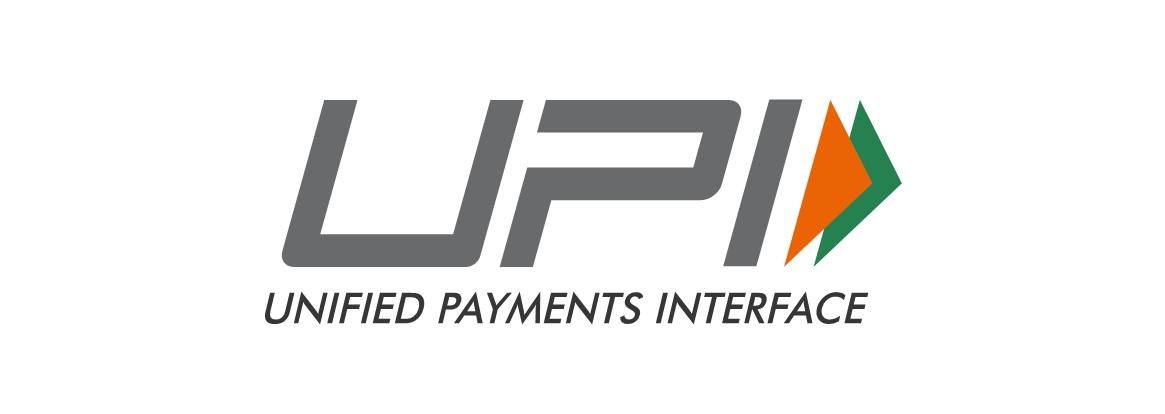
Education
Supreme Court Calls for Early Sex Education in Schools: “Not from Class IX, But from a Younger Age”
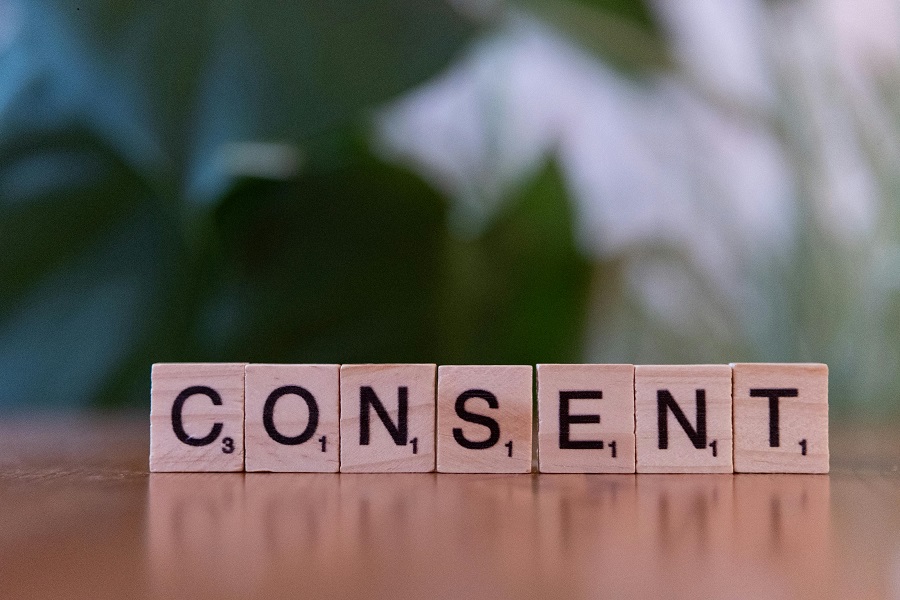
In a landmark observation, the Supreme Court of India has emphasised the urgent need to introduce sex education at a younger age, rather than waiting until Class IX as is the current norm. The apex court stated that children should be informed and sensitised about the physical and emotional changes that accompany puberty — and taught the necessary care and caution that come with it.
The observation came from a Bench comprising Justice Sanjay Kumar and Justice Alok Aradhe, which noted that the absence of early sex education leaves children vulnerable to misinformation and misunderstanding during their formative years.
“Sex education should be provided to children from a younger age and not Class IX onwards. It is for the authorities concerned to apply their mind and take corrective measures so that children are informed of the changes that happen after puberty,” the court stated.
The Bench made the remarks while hearing an appeal filed by a 15-year-old boy, who had been denied bail by the Allahabad High Court in a case under Sections 376 and 506 of the Indian Penal Code (IPC) and Section 6 of the Protection of Children from Sexual Offences (POCSO) Act. Recognising that the accused was himself a minor, the Supreme Court had earlier granted him bail in September 2025.
In the same case, the Court had directed the Government of Uttar Pradesh to submit an affidavit explaining how sex education is currently implemented in schools. The state responded that sex education is introduced only in Classes IX to XII, following NCERT guidelines. However, the Bench expressed concern over this delayed introduction and urged policymakers to revisit the framework to ensure children receive age-appropriate education much earlier.
The Court set aside the High Court’s order and made the juvenile’s bail permanent until the completion of the trial. More importantly, its remarks have reignited the national debate on the need for comprehensive sexuality education in India, which many experts argue is crucial to preventing abuse, reducing stigma, and promoting healthy development among adolescents.
Education experts have long maintained that early, factual, and inclusive discussions about puberty, consent, and emotional health must begin before adolescence — ideally in primary school — to prepare children for real-world experiences and relationships. The Supreme Court’s observation is expected to prompt renewed policy discussions on revising the sex education curriculum nationwide.
Education
Delhi Government Launches Online First Aid Training Programme for Teachers

The Delhi government has introduced a new online training programme designed to equip teachers with essential first aid skills to respond effectively during health emergencies in schools.
According to a circular issued by the State Council of Educational Research and Training (SCERT), the course — titled “First Aid – To Improve Human Reaction in Challenging Health Situations” — will be conducted under the Massive Open Online Course (MOOC) format. The training is mandatory for all teachers and will run from October 9 to October 19, 2025.
The initiative aims to increase awareness about the importance of readiness in medical emergencies and the role of first aid in saving lives. It will also educate teachers on maintaining functional first aid kits in classrooms and demonstrate practical methods for administering care in real-life situations.
Teachers must achieve at least 70 per cent in each assessment to complete the course successfully. Upon completion, participants will receive certificates, which can be downloaded directly from the platform.
By introducing this online training, the Delhi government seeks to build a culture of preparedness and safety across schools. With thousands of teachers gaining basic emergency response skills, the initiative is expected to significantly improve the ability of schools to manage sudden health crises and ensure student well-being.
Education
Atal Innovation Mission and IFCCI Join Hands to Scale Up Atal Tinkering Labs Across India
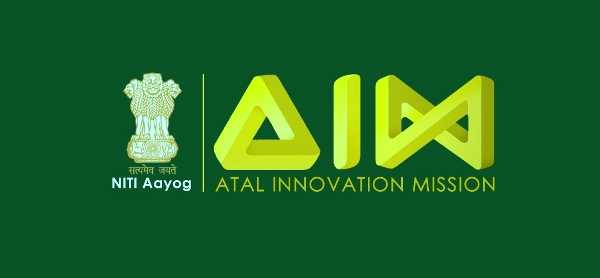
The Atal Innovation Mission (AIM), NITI Aayog, and the Indo-French Chamber of Commerce & Industry (IFCCI) have signed a Statement of Intent (SoI) to strengthen and expand the Atal Tinkering Labs (ATLs) network across India. The agreement, formalised at the French Embassy in New Delhi during IFCCI’s 3rd CSR Connect Day 2025, marks a significant step in fostering STEM education, digital literacy, and innovation among school students.
The event was attended by H.E. Thierry Mathou, Ambassador of France to India, who praised the partnership for deepening Indo-French collaboration in social development. He highlighted that 2026 will mark the India–France Year of Innovation, encouraging businesses from both nations to invest in sustainable, community-driven impact initiatives through Corporate Social Responsibility (CSR).
Through this partnership, IFCCI and AIM aim to mobilise CSR contributions from French and Indian companies to improve infrastructure, enhance hands-on learning experiences, and bridge the gap between industry and education. IFCCI, which has already executed over 86 CSR projects benefiting more than 15,000 people across India, will leverage its network to support ATL expansion, particularly in underserved schools.
Mission Director of AIM, Deepak Bagla, noted that over 11 million students have already benefitted from the ATL initiative, which he called “one of the world’s largest grassroots innovation programs.” He said, “From the northernmost village school to the southernmost, innovation is thriving everywhere. The real story lies not in the scale, but in the creativity of the ideas students are building.”
A Shared Vision for Inclusive Innovation
The collaboration aims to make innovation accessible to all students by promoting digital tools, teacher training, and student challenges that inspire curiosity and problem-solving. IFCCI Director General Payal S. Kanwar added, “This partnership is a step forward in empowering youth with 21st-century skills. We aim to bridge the gap between industry and education and make innovation accessible to every student, especially in underserved regions.”
However, as the Atal Tinkering Labs expand, addressing operational challenges remains crucial. Reports by UNICEF and The New Indian Express underscore that access to digital tools alone cannot guarantee innovation without inclusive design, mentorship, and ethical technology use. UNICEF’s SPARK Labs model, which links creativity with social change, offers a useful reference — encouraging schools to blend innovation with empathy, inclusion, and purpose.
Challenges and Areas for Improvement
Despite the ATL program’s remarkable reach, a 2023 assessment highlighted several gaps. Nearly 58% of ATL teachers lack a STEM background or structured training, resulting in inconsistent mentorship. In many schools, ATL sessions are not integrated into the timetable, limiting daily engagement. Moreover, less than 10% of schools report active student participation due to limited guidance and parental scepticism about its academic value.
Operational hurdles like irregular funding, defective equipment, and poor monitoring systems have also hindered consistent performance. Some schools struggle to maintain labs once initial grants are exhausted, while others lack a mechanism to track outcomes effectively.
The Way Forward
For the AIM–IFCCI partnership to achieve its full potential, a few key steps can strengthen impact:
-
Teacher Capacity Building: Introduce regular certification-based training programs, preferably in collaboration with universities and tech firms.
-
Curriculum Integration: Embed ATL projects within school timetables and link them with existing subjects like science and mathematics.
-
Mentorship Networks: Connect schools with local innovators, start-ups, and CSR professionals for year-round engagement.
-
Monitoring Systems: Deploy digital dashboards to track participation, tool usage, and project outcomes for better transparency.
-
Community Awareness: Conduct parent and community outreach sessions to showcase how tinkering enhances academic learning and future employability.
If executed effectively, this Indo-French collaboration can redefine India’s innovation ecosystem by turning every school into a space where curiosity meets creation. The challenge now lies in ensuring that every student, regardless of background, not only has access to a lab but also the guidance and confidence to build something meaningful within it.
-

 Education3 months ago
Education3 months agoSupreme Court Calls for Early Sex Education in Schools: “Not from Class IX, But from a Younger Age”
-

 Education3 months ago
Education3 months agoAtal Innovation Mission and IFCCI Join Hands to Scale Up Atal Tinkering Labs Across India
-

 Education3 months ago
Education3 months agoBeyond the Syllabus: School Teachers’ Insights on Project-Based Learning
-

 Education3 months ago
Education3 months agoDharav Utsav to Celebrate Rajasthan’s Cultural Heritage and Local Talent
-

 Education3 months ago
Education3 months agoDelhi Government Launches Online First Aid Training Programme for Teachers
-

 Education3 months ago
Education3 months ago17-year-old Innovator Designs Learning Tools for the Visually Impaired
-
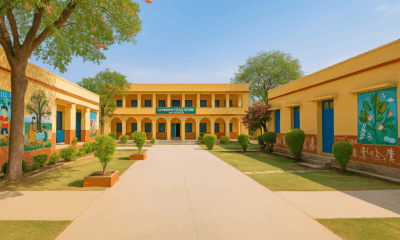
 Education3 months ago
Education3 months agoMinistry of Education to Promote Clean and Vibrant School Environments
-
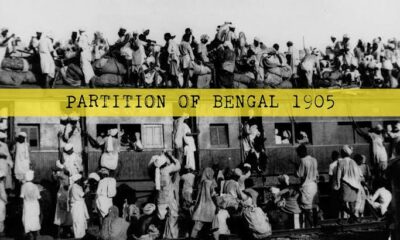
 Education3 months ago
Education3 months agoNCERT Introduces ‘Swadeshi Module’ to Foster Self-Reliance and Indian Values in Schools
-

 Education3 months ago
Education3 months agoOver 3 Lakh Schools Join Hands for India’s Largest-Ever Innovation Challenge: Viksit Bharat Buildathon 2025
-

 Education2 months ago
Education2 months agoAI to Become a Core Subject from Class 3: India’s Big Leap Toward a Future-Ready Generation









